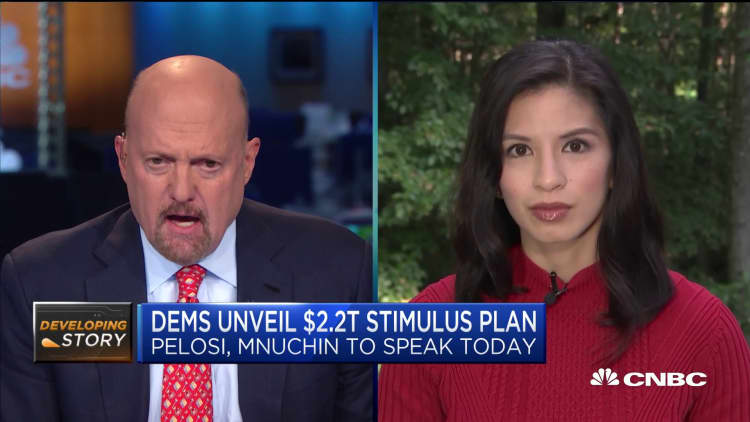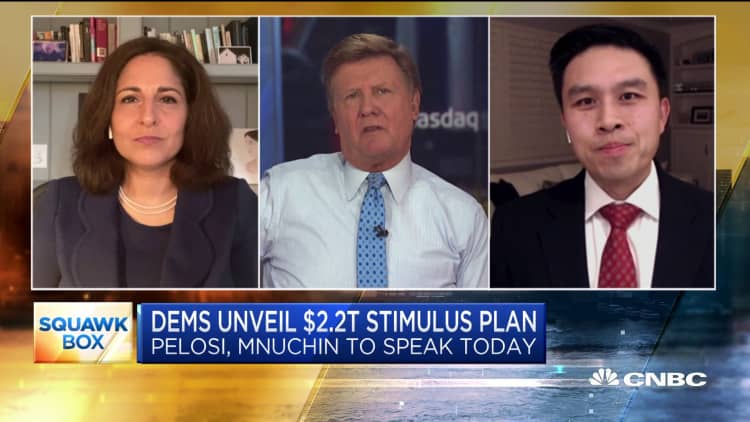House Speaker Nancy Pelosi and Treasury Secretary Steven Mnuchin spoke Tuesday morning after Democrats unveiled a coronavirus stimulus plan designed to restart progress toward a relief deal.
Democrats released the $2.2 trillion legislation Monday night as they struggle to break a weeks-long impasse with the White House over how to structure a fifth relief bill. While the Democratic-held House passed a $3.4 trillion proposal in May, the Trump administration has offered to inject only $1.3 trillion more into efforts to boost the economy and health-care system during the pandemic.

Pelosi and Mnuchin spoke for 50 minutes on Tuesday morning and "went over the provisions" of the latest proposal, the speaker's spokesman Drew Hammill said. While the pair agreed to talk again Wednesday, it is unclear if they moved any closer to a compromise.
In an interview with MSNBC, Pelosi called the conversation with Mnuchin "positive." Asked if the House would vote on its bill, the California Democrat said she hopes "we will come to a bipartisan agreement that will remove all doubt that the legislation will pass and be signed by the president."
Writing to House Democrats on Monday night, Pelosi said her party is "making good on our promise to compromise with this updated bill" because it cuts more than $1 trillion from their original plan. The new legislation would:
- Reinstate the $600 per week enhanced unemployment benefit through January
- Send a second $1,200 direct payment to most Americans
- Give $436 billion in relief over one year to state and local governments
- Authorize more money for a second round of Paycheck Protection Program loans for the hardest-hit businesses and industries
- Send $25 billion to airlines to cover payroll costs
- Inject $75 billion into Covid-19 testing and contact tracing efforts
- Put $225 billion into education and $57 billion into child care
- Set aside billions for rental and mortgage assistance
Republicans have in particular fought against sending additional relief to states and municipalities. The White House has proposed $150 billion in new aid to states and localities.
The push to rejuvenate stimulus talks follows growing doubts about Congress' ability to approve another aid package before the Nov. 3 election, when both parties will try to at least keep control of a chamber of Congress. Political considerations played a huge role in the discussions, even before the Senate started wrestling over whether to confirm President Donald Trump's Supreme Court nominee Amy Coney Barrett before the election.

Many Republicans have expressed concerns about adding to the trillions the U.S. has already spent to fight the pandemic and ensuing economic damage. The GOP-held Senate tried to pass a roughly $500 billion aid plan earlier this month, but Democrats blocked it, calling the bill inadequate.
The fight over more relief comes as the U.S. still struggles to contain its coronavirus outbreak. New cases were growing by 5% or more on a weekly basis in 30 U.S. states as of Monday.
While the U.S. enjoyed several straight months of strong jobs growth after widespread layoffs in the spring, the country still had an 8.4% unemployment rate in August. On Thursday, the Labor Department said initial jobless claims rose in the previous week.
As Congress failed to pass legislation this summer, Trump took limited executive actions to extend supplemental unemployment benefits, eviction protections and student loan assistance.


